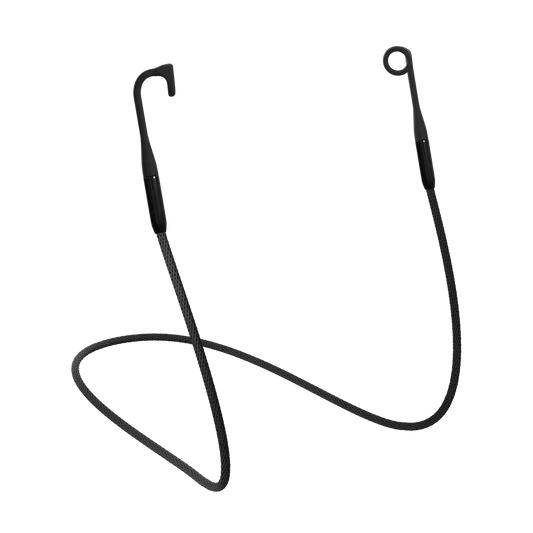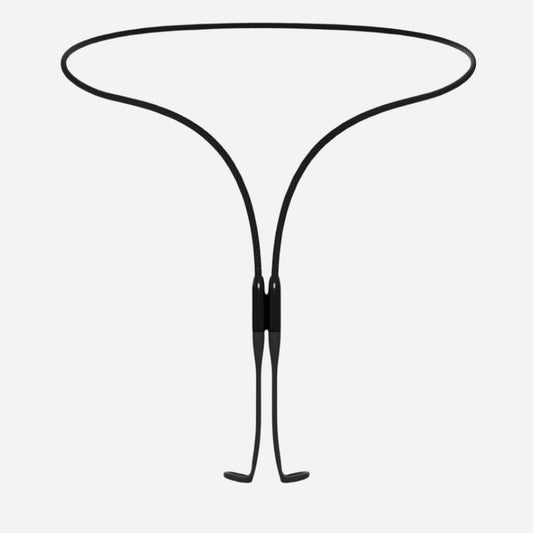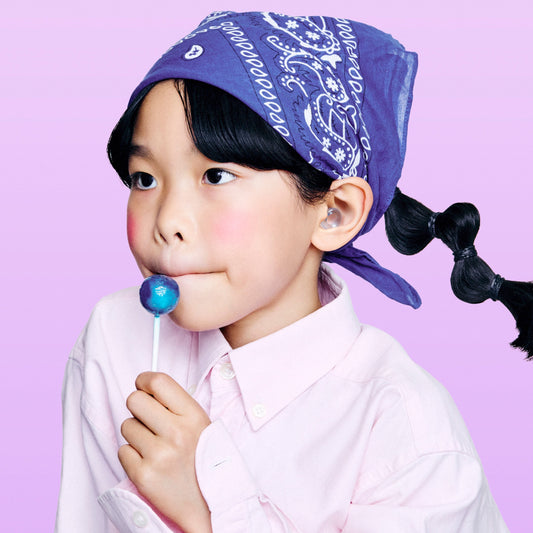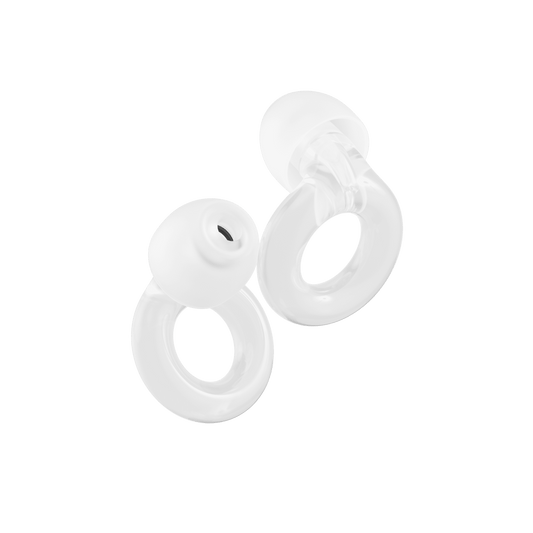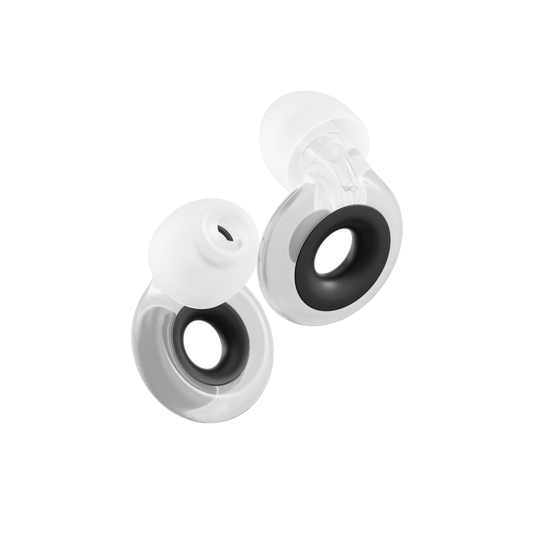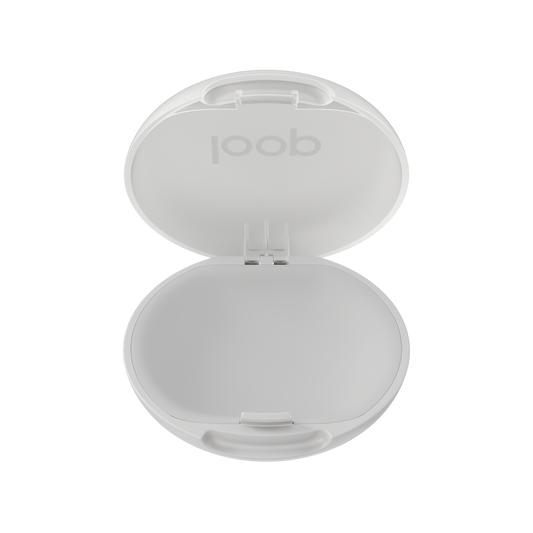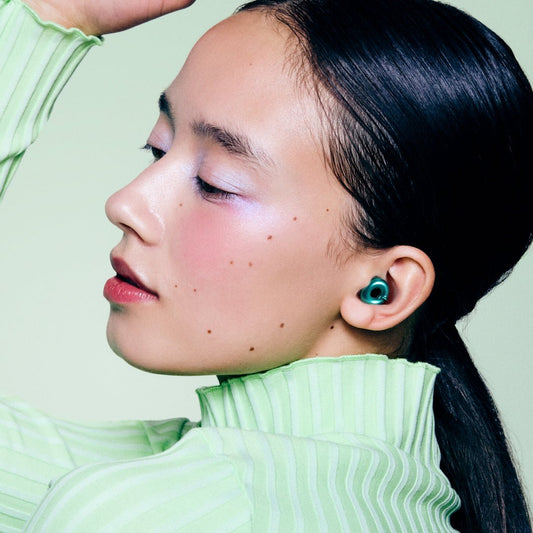Key takeaways:
- Misophonia is a hatred of sound, and it’s usually triggered by repetitive noises like tapping, chewing and loud breathing
- It’s a type of sound sensitivity – something that many people with ADHD also experience
- There’s little scientific research into the link between ADHD and misophonia, so it’s not yet fully understood how these two conditions are linked
- But one thing’s for sure: living with misophonia can be difficult and debilitating. But there are coping strategies to help you deal with it and live life more comfortably!
Does the sound of someone tapping their fingers, repeatedly sighing, or breathing loudly make you want to scream? We can all relate – but for some people, these sounds are a mild annoyance, while for others they cause feelings of anger, disgust, and a need to physically escape the situation.
There’s a name for this: misophonia. It’s a selective sound sensitivity disorder – and at its most extreme, it can completely disrupt a sufferer’s life.
Hypersensitivity to sound is a problem faced by many people with attention deficit hyperactivity disorder (ADHD). So, what’s the connection between misophonia and ADHD? Is misophonia linked to ADHD? Is, in fact, misophonia a form of ADHD? Or is misophonia a symptom of ADHD? Let’s take a closer look at the two conditions and the potential links between them.
Understanding misophonia
The actual meaning of misophonia is ‘hatred of sound’. It comes from the Ancient Greek words for ‘hate’ and ‘voice’ or ‘sound’. The scientific and medical worlds are still undecided on how to classify it – is it a disorder, or a psychiatric condition? Misophonia is still a very “young” condition – it was only first proposed for recognition in 2001 and then for diagnosis in 2013. It still isn’t considered an officially diagnosable condition. In fact, even the term condition isn’t agreed upon – some scientists call it a syndrome or even just a symptom.
But there’s one thing that everyone can agree on – the symptoms of misophonia are very real for those experiencing them.
Misophonia triggers vary massively from person to person, but they often include repetitive noises like chewing, lip smacking and swallowing. Some other common trigger noises include:
- Sniffing
- Tapping
- Loud sighing
- Pets licking
- Fabrics rubbing together
- Pen clicking
- Breathing
These sounds may seem innocuous to most people – but for those with misophonia, these noises can provoke intense emotional responses.
The most common emotion people feel when triggered is anger, there are others, which include:
- Anxiety
- Disgust
- Impatience
- Intense stress
- Feelings of being trapped or stuck
Ultimately, at its worst it can cause someone to experience the overwhelming “fight or flight” response, or even a full panic attack.
The impact of misophonia on individuals' daily lives can be significant. Constant exposure to trigger sounds can be difficult to deal with, leading to high stress levels, difficulty concentrating, disrupted sleep patterns and poor productivity.


For some sufferers, their trigger sounds are rare or unusual enough for them to be able to pretty effectively avoid them on a day-to-day basis – but for people who are triggered by everyday sounds like eating or breathing, this simply isn’t practical. Behavior such as always eating alone or avoiding any close physical contact with other people can quickly have significant effects on mental health.That means the threat of being exposed to triggering sounds may even cause individuals with misophonia to stay at home to avoid unwelcome noises, which can lead to isolation.
All of this can have a significant impact on mental health and wellbeing, potentially leading to anxiety disorders, depression, or other mental health issues if left untreated.
Unveiling ADHD
ADHD is a condition that affects both children and adults, which is characterized by persistent patterns of inattention, impulsivity or hyperactivity, all of which can interfere with daily functioning and development.
Common symptoms of ADHD include difficulty sustaining attention on tasks, frequent careless mistakes, impulsivity, difficulty waiting turns, excessive talking, and restlessness. Many people with ADHD also have sensory sensitivities, including sensitivity to noise.
As well as these symptoms, some people with ADHD can struggle with things like organization, time management, maintaining relationships, and regulating emotions. These difficulties can impact self-esteem, achievement, and overall quality of life.
While the exact causes of ADHD are not fully understood, but it’s thought that genetic factors play an important role, with research showing that parents and siblings of someone with ADHD are more likely to have ADHD themselves. Other potential causes include:
- Differences in brain structure in people with ADHD
- People who were born prematurely
- People with epilepsy
- Smoking or alcohol or drug abuse during pregnancy
The overlapping symptoms
As misophonia is in the early stages of scientific recognition, studies into ADHD and misophonia are limited. Some research has shown a potential connection with ADHD, but with such a small base of evidence, a conclusive link can’t be determined right now.
While we can’t conclusively connect it with misophonia, there has long been a clear link between ADHD and sensory hypersensitivity, including sound.
It’s common for ADHD sufferers to find it difficult to filter out ambient or irrelevant sensory stimuli. This overload to the senses can easily overwhelm someone with ADHD, making it impossible for them to concentrate on the real task or situation at hand.
Imagine meeting a friend for lunch at an outdoor cafe in a busy city. For those of us without ADHD, we’d be aware on some level that it might be noisy outside, or that there are lots of people walking by or even that we can smell the food from the burger bar two doors down.
For someone with ADHD, every single one of those inputs – and the million more happening at the same time – could stop them being able to have any sort of conversation or pay attention to anything their friend is doing or saying.
Much like misophonia, this kind of experience is likely to cause stress, with people feeling anger, anxiety, and a need to flee. For ADHD sufferers, this can bring a double burden as a common symptom of the condition is difficulty regulating and controlling emotions.
People with both ADHD and misophonia may struggle with maintaining focus, heightened sensitivity to external stimuli, and impulsive reactions. For example, if you struggle to concentrate on a task due to background noise, and feel a sense of anger or impulsivity, this could be down to either ADHD or misophonia – or you may have both conditions.
Neurological and psychological connections
Both misophonia and ADHD may involve abnormalities in neurological pathways related to sensory processing and emotional regulation. A 2017 study found that the brain's emotional processing centers produced an extreme response when people with misophonia heard trigger sounds, while a study from 2021 found that people with misophonia may have larger amygdalas (the part of the brain responsible for triggering the fight or flight response). That means that a larger amygdala may be responsible for the exaggerated response to trigger responses in people with misophonia, compared to those without the condition.
Many people with ADHD also have sensory processing issues, which may explain the similar responses to noises in people with both conditions, as well as the crossover in people who have both ADHD and misophonia.
The central nervous system deals with receiving, processing and responding to sensory information. That means that it’s responsible for how we think, feel and move – but it works slightly differently in people with ADHD. That can make things like paying attention to a task, staying organized, and thinking before acting more difficult – and some people with ADHD also struggle to filter out irrelevant sensory input, leading to feeling overwhelmed by sights, sounds, or touch.


The impact on daily life
Misophonhia and ADHD can both have a significant impact on everyday life, whether at home, school, work or in social settings.
In academic settings, individuals with misophonia or ADHD may struggle to concentrate in noisy classrooms or during exams, leading to decreased performance and increased stress. Similarly in professional environments, both misophonia and ADHD can hinder productivity and performance. It may be difficult to focus in an open-plan office where you can’t escape from trigger sounds, for example.
Many people with both misophonia and ADHD also find it difficult to engage in social activities. If you’re worried about hearing trigger sounds, then you may avoid parties, dining out and other social events – which can lead to feelings of isolation. Additionally, people with ADHD may be dealing with other issues like difficulty following conversations, which may lead to further social anxieties.
And at home, as much as parents love their kids, a lot of child-related noises can be triggering for people who are sensitive to noise (we’re talking about open-mouth chewing, sniffing, crying and screaming). That can make it difficult to deal with everyday life, and many parents with misophonia or ADHD may find themselves longing for a little peace and quiet.
Treatment approaches
There are lots of different approaches for both ADHD and misophonia – so sometimes it might take some trial and error to find the right one for you.
Misophonia treatment options can include:
- Tinnitus retraining therapy, which can help you to better tolerate noises
- Counterconditioning, which can help to change your response to a trigger
- Cognitive behavioral therapy, which can help you to change your thoughts, feelings and responses to certain situations
For ADHD, some treatment options include:
- Medication
- Therapy, including cognitive behavioral therapy, psychotherapy and social skills training
For both misophonia and ADHD, you may find a multidisciplinary approach to be the best option. A combination of therapy, medication, environmental modifications and lifestyle adjustments can give you all the support you need, helping to reduce your symptoms and improve your quality of life. It’s always a good idea to seek advice from a professional, so you can be sure you’re getting the right treatment options to suit your personal circumstances.
Coping strategies and support
If you’ve got misophonia, ADHD, or both, then there are various coping strategies you can use – as well as therapies and medications – to manage your symptoms and improve your day-to-day life.
There’s a lot of overlap when it comes to the types of coping strategies you might consider – but as with treatment options, it may take some time to figure out which options work best for your individual needs. Some options include:
- Using noise-reducing earplugs to reduce exposure to trigger sounds in noisy environments, making it more comfortable to get out there and live your life
- Relaxation techniques like deep breathing and mindfulness, which can reduce the stress and anxiety associated with trigger sounds
- Using white noise machines to mask repetitive or loud trigger noises and help you to feel more relaxed
- Joining a support group for emotional validation and practical assistance
What’s more, education and awareness play a crucial role in reducing stigma and promoting understanding of these conditions. By better understanding the conditions – whether you have one, the other, or both – individuals with misophonia and ADHD can feel empowered to seek help and access resources for managing your symptoms effectively.
Key takeaways
Sensory hypersensitivity is already a known subset of symptoms for ADHD. So while an extreme intolerance to certain sounds is a common feature shared between misophonia and some forms of ADHD, it doesn’t necessarily mean someone with ADHD and a hypersensitivity to sound would be described as having misophonia too.
In terms of scientific research, it’s still early days. A clearer link may yet be found that will help shed light on why so many common aspects are shared between the two conditions – and hopefully this will in turn lead the way to helping sufferers find some peace in our noisy modern world.
But whatever the agreed terminology or diagnoses, the symptoms can be debilitating for some people. If that includes you or someone you know, don’t go it alone.
Help and support is out there to help you manage sensory symptoms which are causing you stress and making your life difficult – whether you suffer from misophonia, ADHD, or something else.













